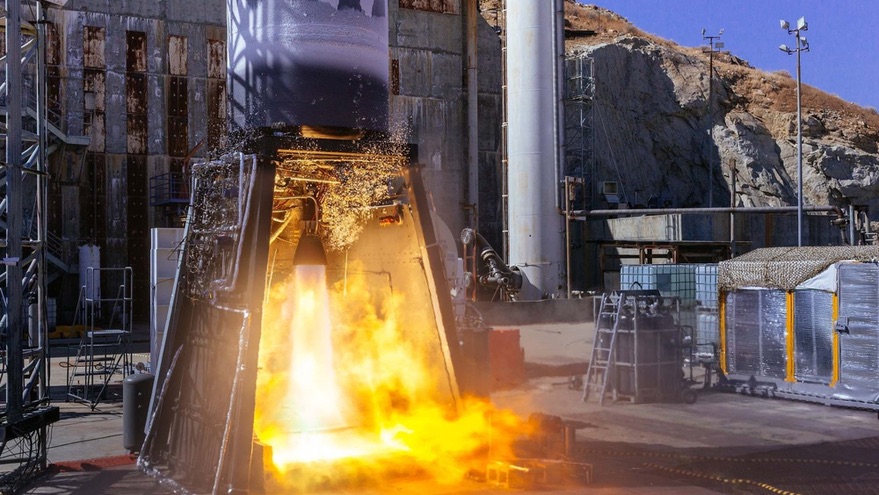Products You May Like
WASHINGTON — Small launch vehicle developer ABL Space Systems announced Oct. 22 that it has started a series of static-fire tests of the upper stage of its vehicle, putting the company on track for a first launch in 2021.
The company said it performed integrated stage testing of the upper stage of its RS1 vehicle at Edwards Air Force Base in California. That test included fueling of the stage, refining startup sequences and firing its single E2 engine.
“Folks who know orbital launch know that integrated stage testing is the first real proof of capability,” said Dan Piemont, founder and president of ABL, in statement. “To get here in just three years with under 75 people validates the superiority of our approach.”
The engine fired for a “short duration” in that test, Piemont said, but didn’t give a specific duration of the burn. The company expects to run the engine for about 1,000 seconds over the course of the overall test campaign.
The RS1 being developed by ABL features two stages, with the first stage powered by nine E2 engines, which use liquid oxygen and refined kerosene propellants. Piemont said the company plans to do a “traditional battery of tests” of the lower stage, including a static fire, in the future.
The company expects to ship the first flight version of the RS1 first stage from its El Segundo, California, headquarters to Vandenberg Air Force Base by the end of the year for a launch attempt in the first quarter of 2021. The company has secured a “right to entry” to Launch Complex 576E at Vandenberg, which was previously used by the Taurus and Minotaur-C vehicles. Piemont said that the company doesn’t expect to make many changes to the launch site since the RS1 is designed to use mobile infrastructure and operate from “austere, unimproved sites.”
The RS1 is intended to place up to 1,000 kilograms into sun-synchronous orbits for $12 million per launch. The company announced in August it had secured $44.5 million in U.S. Air Force contracts for launch demonstrations, as well as $49 million in private financing.
The company, in its announcement of its testing milestone, contrasted its approach to competitors in the small launch market. “Simplicity is key,” said Harry O’Hanley, founder and chief executive of ABL. “Our company is just over three years old. Yet, we’ve moved markedly faster and been more capital efficient than others because we avoid exotic, unproven architectures and manufacturing processes.”
The company didn’t mention any specific competitors, but a likely candidate is Virgin Orbit, which is developing an air-launch system called LauncherOne that suffered an engine malfunction during its first orbital launch attempt in May after several years of development. The company is planning a second orbital launch attempt late this year.
During an Oct. 20 appearance at The Wall Street Journal’s WSJ Tech Live 2020 conference, company founder Richard Branson claimed Virgin Orbit had raised $1 billion, a figure significantly higher than previous estimates for the cost of building up the company, which now has several hundred employees, and developing LauncherOne. Branson also confirmed at the event that Virgin Orbit is seeking to raise an additional $200 million in the coming months.
